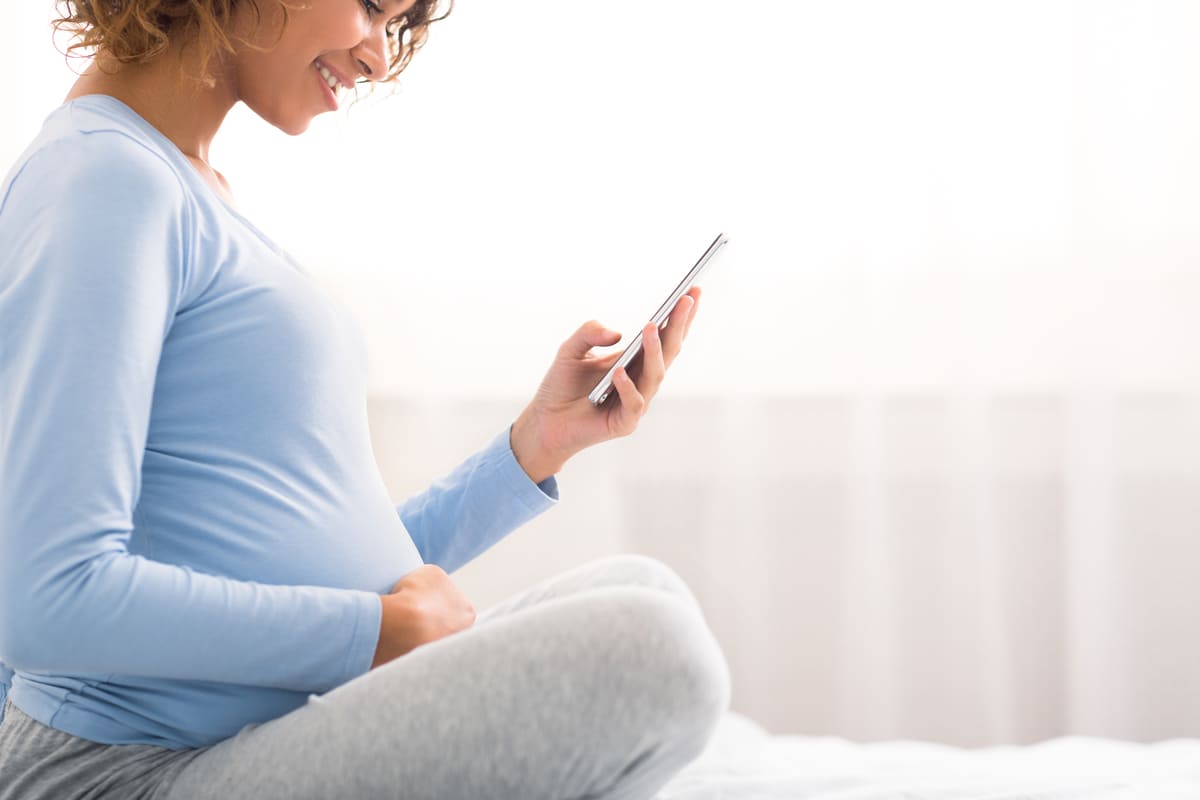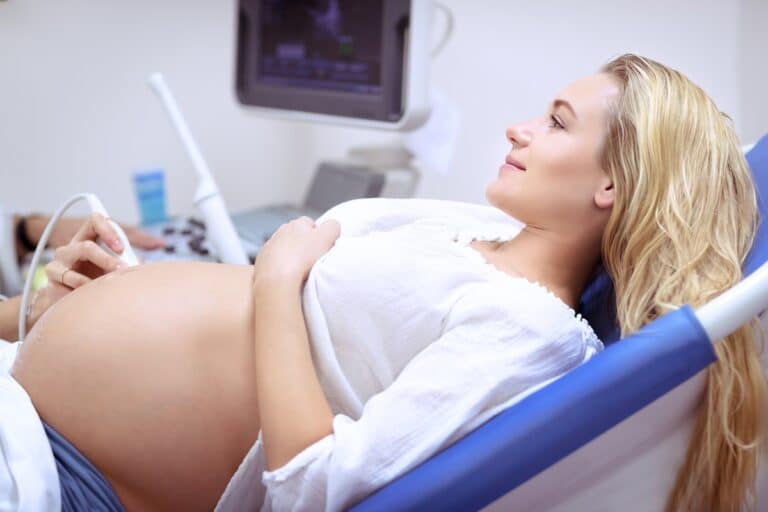Whether you’re trying to get pregnant or not, the period between thinking you might be pregnant and knowing for certain can be a major source of anxiety. During this time, the “two-week wait,” or the time between ovulation and your expected period, can feel like an eternity. It’s only natural to want to find out if you’re pregnant as soon as possible. Unfortunately, if you take a test too soon, it could give you a negative result even if you are pregnant.
Most at-home pregnancy tests check to see if there is HCG (human chorionic gonadotropin) in your urine, which increases after conception. Because HCG levels double approximately every 24 to 48 hours in the first few weeks of pregnancy, waiting to test after your missed period is best.
But that’s not all – how and at what time of day you take a test also matters. Read on to discover the best time and way to take a pregnancy test to get the most accurate results.
In This Article
Best Time to Take a Pregnancy Test
Before we dive into timing, let’s quickly talk about pregnancy test accuracy.
As mentioned, most home pregnancy tests work by detecting the hormone HCG in urine, which is produced when a fertilized egg attaches to the uterus lining. Because the HCG levels rise rapidly in the first few weeks of pregnancy, it’s best to take the test after you’ve missed your period.
Waiting at least a day after your missed period allows HCG levels to build up, increasing the likelihood of a reliable result. In other words, if you test too early, the HCG concentration might not be sufficient for detection, leading to a false negative result.
So, in conclusion: the best time to take a pregnancy test is after you’ve missed your period.
If you’re not exactly sure when you can expect your period, consider using a pregnancy test calculator. Flo’s calculator, for example, can help you identify when your period may be late based on your last period and average cycle length, and therefore, the best day to take a pregnancy test.
But what about the specific time of day – does it make a difference? As a matter of fact, it does. Since your first-morning pee is the most concentrated, it contains higher levels of HCG than your later urines. This concentrated sample increases the accuracy of the test and reduces the chances of false negatives.
On top of this, taking the test first thing in the morning ensures you have more time to process the results emotionally. After all, whether you’re hoping for a positive or negative result, waiting can be nerve-wracking, so it’s best to face them early on when you have a calmer mind and heart.
How to Take a Pregnancy Test
Now that you’ve got the timing down, let’s talk about how to take the test correctly.
The most important step is reading and following the instructions provided with the test. While at-home pregnancy tests are all quite similar, each may have slightly different guidelines for use, and not adhering to them can lead to inaccurate results.
Before taking the test, you should also consider your fluid intake. Drinking large amounts of liquid before testing can dilute your urine, potentially affecting the accuracy of the results. For this reason, it’s best to use your first-morning pee or at least wait until your urine has been in your bladder for three hours.
Finally, make sure to check the test’s expiration date. An expired test might not provide accurate results, so always double-check before using it.
Using an Early Pregnancy Test
Waiting to take the test until after you’ve missed your period is ideal, but what if you cannot wait that long? Perhaps you’re trying to conceive and find the wait unbearable, or maybe you want to be sure you’re not pregnant as soon as possible. The good news is, there are some early pregnancy tests that you can take much sooner: four days before your expected period, to be exact.
Not sure when that is? Consider tracking your cycle using a period tracker. The Flo app, for instance, can predict the date of your next period by taking into account the average length of your cycle and the date of your last period, which can help you estimate the best day for taking an early pregnancy test. This can help you avoid testing too early and getting a false negative result, saving you from unnecessary worry or disappointment.
In Conclusion
Taking a pregnancy test can be an exciting and stressful experience at the same time. To get the most accurate results, it’s best to wait at least a day after your missed period and take the test in the morning when your pee is more concentrated. Remember to read and follow the instructions provided with your specific pregnancy test, too, as different brands may present the results differently.
Regardless of the result, remember that you’re not alone – healthcare professionals are there to support you whatever your decision regarding your potential pregnancy.











